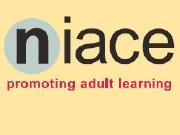Report highlights provision decline for adults with learning difficulties and/or disabilities

Changed funding arrangements resulted in one in five Learning and Skills (LSC) funded learning providers reducing opportunities for adult learners with learning difficulties and/or disabilities between 2006 and 2008.
The decline was noted in research, carried out by the Institute for Employment Studies (IES) in early 2008 for LSC, on the impact of any changes in FE provision for learners aged 19 and over with learning difficulties and/or disabilities. Only now being published, the research shows that although 80 per cent of providers of LSC-funded learning did not report a decline in their provision, 19 per cent said they reduced provision for adults with learning difficulties and/or disabilities because of a reduction in funding, rather than a fall in demand.
IES’ report also showed some providers blamed the cuts on managing reduced allocations to meet LSC priorities, suggesting a lack of such provision to meet a focus on learning leading to progression.
Peter Lavender, deputy chief executive of NIACE, said: “This is the second time we have had a report of cuts – the very reason IES were commissioned was because of the shock of the scale of cuts in 2007. Those learners fortunate enough still to be on courses clearly benefit, they not only learn social skills but become more confident, are stimulated into further learning and many – according to this report – believe they have gained skills to use in future employment.
“The Skills Investment Strategy, published late last year, stated that investment for learners with learning difficulties and/or disabilities ‘remains a priority’. However with the cut in the Developmental Learning budget – as set out in the Skills Investment Strategy – there is a potential for this to negatively impact on learners with learning difficulties and/or disabilities – which is likely to lead to yet more lost provision.
“It is essential for the Skills Funding Agency and the Young People’s Learning Agency to make sure such cuts don’t happen again by securing a way of working formally in partnership and supporting providers effectively.”
Jason Rainbow






Responses